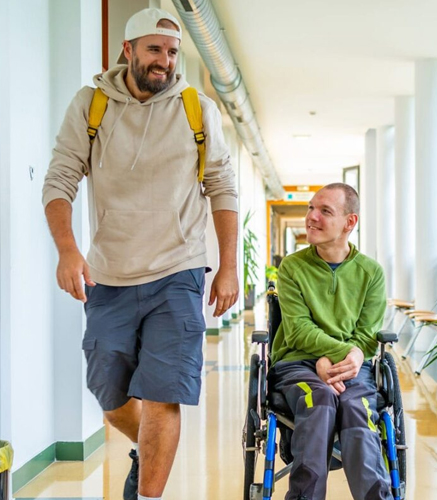NDIS Support for Premature Birth: Empowering Families

Premature birth is a significant event that can affect a child’s development in many ways. With advancements in neonatal care, many premature infants survive and thrive, but they may face long-term developmental challenges. As these children grow, they may encounter delays in motor skills, cognitive functions, social interactions, and more. In Australia, the National Disability Insurance Scheme (NDIS) offers vital support to families navigating these challenges. Through personalized plans, families can access a range of services that help children with developmental disorders caused by premature birth.
This article explores how NDIS support can empower families and improve outcomes for children born prematurely, offering a comprehensive look at the resources available to parents and caregivers.
A premature birth is defined as a birth that occurs before 37 weeks of pregnancy. Full-term pregnancies last about 40 weeks, so premature babies are born at least three weeks before their due date. Premature birth can lead to numerous developmental challenges, as these infants may not have fully developed organ systems and may be more susceptible to infections and long-term health conditions. Some common developmental challenges include:

Premature infants often have delays in achieving milestones such as crawling, walking, and fine motor coordination.

Premature birth can affect brain development, leading to cognitive challenges and learning difficulties.

Delayed language development is common among children born prematurely, especially in areas like vocabulary, communication skills, and social interaction.

Children born prematurely may experience issues with social interactions, self-regulation, and emotional well-being.

Preterm infants may be at risk for vision and hearing impairments due to the underdevelopment of sensory organs.

Some premature infants face chronic lung disease and may require ongoing respiratory support.
Early intervention and consistent support are essential to address these issues effectively.
The National Disability Insurance Scheme (NDIS) offers a comprehensive support system for families dealing with developmental challenges associated with premature birth. The NDIS provides funding and services to help children with permanent and significant disabilities, including those caused by premature birth. It offers a range of supports tailored to the individual needs of children, enabling them to lead more independent and fulfilling lives.

To access NDIS services, children born prematurely must meet certain criteria, including
Age: Children must be under the age of 65 when applying for NDIS support.
Permanent and Significant Disability: The child must have a permanent disability that affects their ability to participate in everyday activities. This can include cognitive, motor, or speech delays resulting from premature birth.
Australian Residency: Applicants must be Australian citizens, permanent residents, or hold a Protected Special Category Visa.
The NDIS application process involves submitting evidence of the child’s developmental challenges and the long-term impact of premature birth. A detailed assessment helps determine eligibility and the level of support needed.
The NDIS provides a wide range of supports that can be tailored to meet the needs of
children
born prematurely. These supports can be categorized into the following areas
Assistance with Daily Living: Support for basic activities such as dressing, feeding, and bathing. This ensures that children with developmental delays can receive the help they need to complete these tasks.
Transportation: Funding for transportation to medical appointments, therapy sessions, and community activities, which is essential for children requiring specialized care.
Consumables: Provision of items such as diapers, medical supplies, or specialized equipment to aid the child’s development.
Therapies: Access to speech therapy, occupational therapy, physiotherapy, and developmental assessments to address specific developmental delays and motor impairments.
Skill Development: Tailored interventions to help children develop cognitive and social skills, preparing them for school and social interactions.
Education Support: Additional educational assistance, including school modifications, tutoring, and aids that enable children to integrate and succeed in the classroom.
Assistive Technology: Funding for specialized equipment such as communication devices, mobility aids, or sensory tools to support the child’s development.
Home Modifications: Changes to the family home to make it more accessible, such as ramps, grab bars, or safe spaces for children to move and explore.
Temporary Relief for Families: Families of children born prematurely often face challenges balancing caregiving responsibilities. Respite care provides temporary relief, giving parents and caregivers the opportunity to rest while ensuring the child continues to receive necessary care.
Each child’s NDIS plan is personalized based on their specific needs, challenges, and goals. The process begins with a comprehensive assessment conducted by an NDIS planner or Local Area Coordinator (LAC), who will gather information on the child’s developmental challenges and areas requiring support. Key steps in developing an NDIS plan include

An in-depth evaluation of the child’s current developmental stage, health needs, and goals for future development.
These may include gaining independence in daily activities, improving communication skills, or achieving academic success.
Based on the assessment, NDIS funds are allocated to therapies, educational support, assistive devices, and other services that align with the child’s needs.
The plan is reviewed regularly to ensure that it continues to meet the child’s evolving needs as they grow.
While the NDIS offers significant benefits, accessing support for
children born prematurely can come with challenges. Some common barriers include

Families may find it difficult to navigate the detailed documentation and medical assessments required for eligibility.
There may be delays in receiving approval for funding and services.
In some areas, there may be a shortage of qualified providers offering the specific services needed for children with developmental challenges from premature birth.
Families may face difficulties in choosing the right combination of therapies and services to meet the child’s unique needs.
Numerous families have experienced life-changing improvements in their
children’s development with the help of NDIS support. Success stories include

A child with motor impairments improving mobility and coordination through physiotherapy and occupational therapy.
A child who struggled with speech delays gaining the ability to communicate effectively after receiving tailored speech therapy sessions.
A family finding relief through respite care, allowing them to recharge while their child received therapeutic interventions.
Several resources are available to help families access and
navigate the NDIS, ensuring they make the most of available supports

For assistance with the application process and finding service providers.
LACs can help families plan, implement, and review their NDIS plans.
Peer networks offer advice and emotional support for families.
Many registered NDIS service providers specialize in helping children with developmental challenges, such as physiotherapists, speech therapists, and educators.
NDIS support for children born prematurely offers vital resources to address the developmental challenges these children face. Through personalized plans and tailored services, families can access the therapies, equipment, and support they need to help their children thrive. By continuing to advocate for more access to support and navigating the NDIS system, families can ensure that their children receive the care and assistance they need for a brighter future.

Immediate Care is here to empower individuals and their families, providing the support they need to live fulfilling lives. Our team’s dedication and expertise make us a leader in the field of disability services.
For more information or to discuss how we can support you, contact Immediate Care today.
Woodstock, Victoria 3751